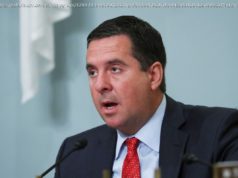The US national and federal debts are unlikely to spell doom to the country’s economy while the US dollar maintains its status as a dominant reserve currency, American economist, author and former civil servant Dr. Paul Craig Roberts told Sputnik, shedding light on more pressing issues for the US economy.
The present US economic problems are difficult to correct, because their roots are in the offshoring of US middle class jobs, Dr. Paul Craig Roberts, a prominent American economist, author and former US Assistant Secretary of the Treasury for Economic Policy under President Ronald Reagan, told Sputnik.
What is worse, Trump’s plan to bring jobs back “is against the short-term profit interest of the global corporations, as their profits would fall from the higher cost of US wages compared to wages in Asia,” he added.
“Essentially, what is happening in the US is that by offshoring middle class jobs, the global corporations have destroyed the purchasing power of the US consumer,” the economist stressed. “Essentially, jobs offshoring destroys the domestic consumer market. It can be kept going for a period by an expansion in consumer debt, but the process stops when the consumers cannot carry any more debt. Once they can’t make the minimum credit card payment, the process stops.”
“As state and local governments cannot print money with which to pay their bills, their ability to meet pensions and other obligations is declining,” he explained. “Cutbacks in pensions, for example, further reduce consumer purchasing power.”
For their part, corporations think short term, the economist pointed out, since “senior executives only have a few years by the time they reach senior ranks to make their fortunes by driving up their bonuses and value of their stock options.”
“The global corporations are a powerful lobby, like the military/security complex and Israel lobbies,” he noted. “It is very difficult for a president to make headway against powerful lobbies.
Commenting on the ongoing fuss over the soaring US national debt, which has mounted over $21 trillion, and federal budget deficit that is threatening to reach $1 trillion by 2020, Dr. Roberts highlighted that “the government debt for the reserve currency country is different from the debt of other countries.”
“As international payments are settled in US dollars, there is always a demand for US dollars,” the economist underscored. “Other central banks keep their reserves in US dollars. The demand for the reserve currency allows the reserve currency country to pay its bills by printing its currency. Its trade deficit is financed by other countries using the dollars they earn to purchase US government debt.”
Thus, there is no reason for panic yet: “As the Federal Reserve can create an unlimited amount of money, the central bank can always redeem Federal debt by creating money with which to pay the bondholder,” the economist remarked.
According to him, the whole construction may fall apart at the seams “when the combination of dollar creation with a move away from the dollar as reserve currency results in a drop in the demand for US dollars.”
Dr. Roberts admitted that the US dollar’s status is “beginning to change a little” as Russia, China, and a few other countries have shifted to national currencies in mutual payments.
But again, it does not seem to be a pressing issue: “Unless the move away from dollar use accelerates, it is likely to be many years before the ‘debt crisis’ manifests itself as a dollar crisis,” he stressed.
Currently, “mortgage debt, credit card debt, student loan debt, state government debt, business debt are more serious issues for the US economy than Federal government debt,” the economist opined.
At the same time, US businesses are also heavily indebted: “In recent years most of business profits have not been used for new investment, but to drive up executive bonuses and shareholder capital gains by buying back the company’s own shares,” Dr. Roberts noted.
He referred to the fact that some businesses have even borrowed the money with which to re-purchase their company’s stock. As a result, “the stock buy-backs drive up the share prices and produce bonuses for executives and boards and gains for shareholders,” he stressed.






